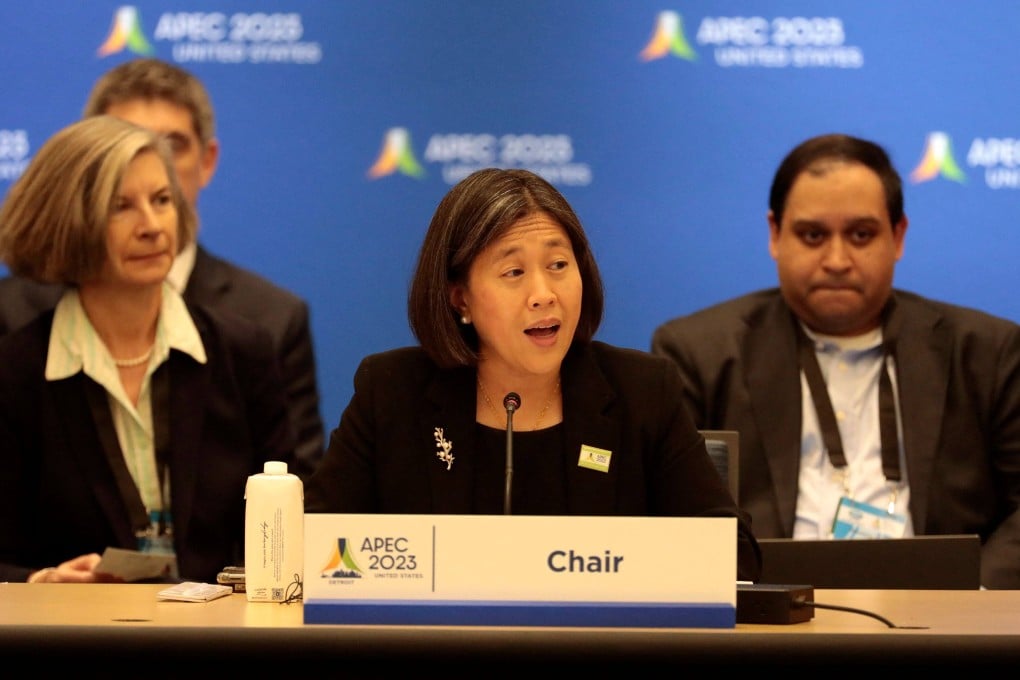At Apec, US Trade Representative Katherine Tai urges ‘worker-centric’ approach to trade policy
- While in the US for Apec, Chinese Commerce Minister Wang Wentao is scheduled to meet with his American counterpart, Gina Raimondo, as well as Tai
- The Asia-Pacific Economic Cooperation trade ministers’ meeting in Detroit has drawn officials from 21 member economies

United States Trade Representative Katherine Tai declared on Thursday that the US under President Joe Biden has been “writing a new story” on trade after focusing for too long on “aggressive liberalisation”, calling for a “worker-centric” approach to trade negotiations and policy.
In her opening remarks at the Asia-Pacific Economic Cooperation (Apec) trade ministers’ meeting in Detroit, Michigan, Tai noted that trade officials from the 21 member economies were gathering at a time of “shared uncertainty and challenges in the global economy, including fragile supply chains, growing inequality and a worsening climate crisis”.
“These challenges were exacerbated through the pandemic, and increasing geopolitical tensions that we see today,” added Tai, who will be meeting Chinese Commerce Minister Wang Wentao on the sidelines of the two-day dialogue.
Wang and his American counterpart, Commerce Secretary Gina Raimondo, were scheduled to hold a dinner meeting on Thursday in Washington, according to reports.

Former US president Donald Trump amplified complaints that China was stealing American manufacturing jobs and dumping its cheap products in the US. In 2018, the year after he took office, he imposed additional 25 per cent tariffs on Chinese imports worth US$300 billion.